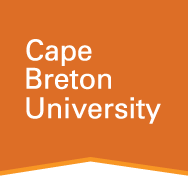About Bachelor Of Health Sciences (public Health) in Cape Breton University
Bachelor of Health Sciences (Public Health)
- Degree Type: Undergraduate
- Length: 1 year, 2 years, 4 years
- So You Can: develop the critical knowledge, skills and attitudes identified as core competencies for a career in Public Health.
Public Health and the Environment
Public Health is defined as what a society does to collectively ensure the conditions for people to be healthy. While taking into account the diverse aspects of human health, the focus of the CBU’s Bachelor of Health Sciences (Public Health) degree focuses on the Environmental dimension of Public Health.
Leveraging the most current technical and scientific information, this program looks at our quality of life as determined by physical, chemical, biological, social, and psychosocial factors in the environment. It also refers to the theory and practice of assessing, correcting, controlling, and preventing those factors in the environment that can potentially adversely affect the health of present and future generations.
The Public Health program at CBU is built to be flexible and can be tailored to the different careers available in this diverse field. There are three different programs available:
- Four-year Degree Option
- Two-year Post Diploma/Degree Accelerated Option
- One-year Professional Degree Option (available via distance education for those already holding the CPHI(C) credential)
See Degree Details for more information on each designation.
Why Public Health at CBU?
- Accredited by the Canadian Institute of Public Health Inspectors, graduates are academically eligible to sit for national certification examinations leading to the credential Certified Public Health Inspector (Canada) – CPHI(C).
- CBU’s goal is to contribute to the promotion of the principles of Public Health for the benefit of our students, our University, and our community.
- Graduates have the knowledge, skills, attitudes and confidence to successfully practice as entry level Public Health Professionals with the technical competencies required by a Public Health Inspector or Environmental Health Specialist.
- CBU emphasizes the roles of health education, community development, population health, and advocacy of public health principles while instilling the critical skills required by Public Health practitioners, like providing support to coworkers and developing surge capacity, particularly in times of crisis or emergency.
- We encourage students to develop leadership abilities and strength of character. CBU encourages free expression and participation, fostering an atmosphere of active learning in which students assume a significant role in their education.
Entry requirement for international students
Students must require graduation from an academic secondary school program or equivalent with an average of “C” in five, senior academic-level/university preparatory courses with English, Mathematics, Chemistry, one additional Science (from Biology, Physics, Geology), one additional course.
TOEFL
Paper-Based Test: 550
Computer-Based Test: 213
Internet-Based Test: 80
IELTS
Overall Score: 6.5
No Band Below: 6.0
Cape Breton University Highlights
| Type of university |
Public |
| Undergraduate Programs |
17 |
| Postgraduate Programs |
3 |
| Diploma and Certificate Programs |
7 |
| Tuition per academic year for Undergraduate International Students |
$17,809 |
| Test scores accepted |
IELTS, TOEFL |
Cape Breton University The Average Tuition Fees And Other Expenses
For international candidates aspiring to study at the university, it is mandatory to have an estimate of the cost of living in Canada to survive comfortably in a foreign land. Below is the estimated tuition and student fees for the Fall/Winter 2019 – 2020 presented-
| Fees |
Undergraduate (CAD) |
Graduate (CAD) |
| Tuition |
8,040 |
2,012 (for six credit course) |
| International differential fees |
8,040 |
1,608 |
| International medical plan |
744 |
744 |
| Fees |
985 |
128 |
| Housing |
5,910 |
5,910 |
| Meal Plan |
4,744 |
4,744 |
| Total |
28,463 |
15,146 |
Note: The graduate fee depends on the number of courses offered by the students. Thus, graduate students should expect to pay more than 400% of the above-stated fees
